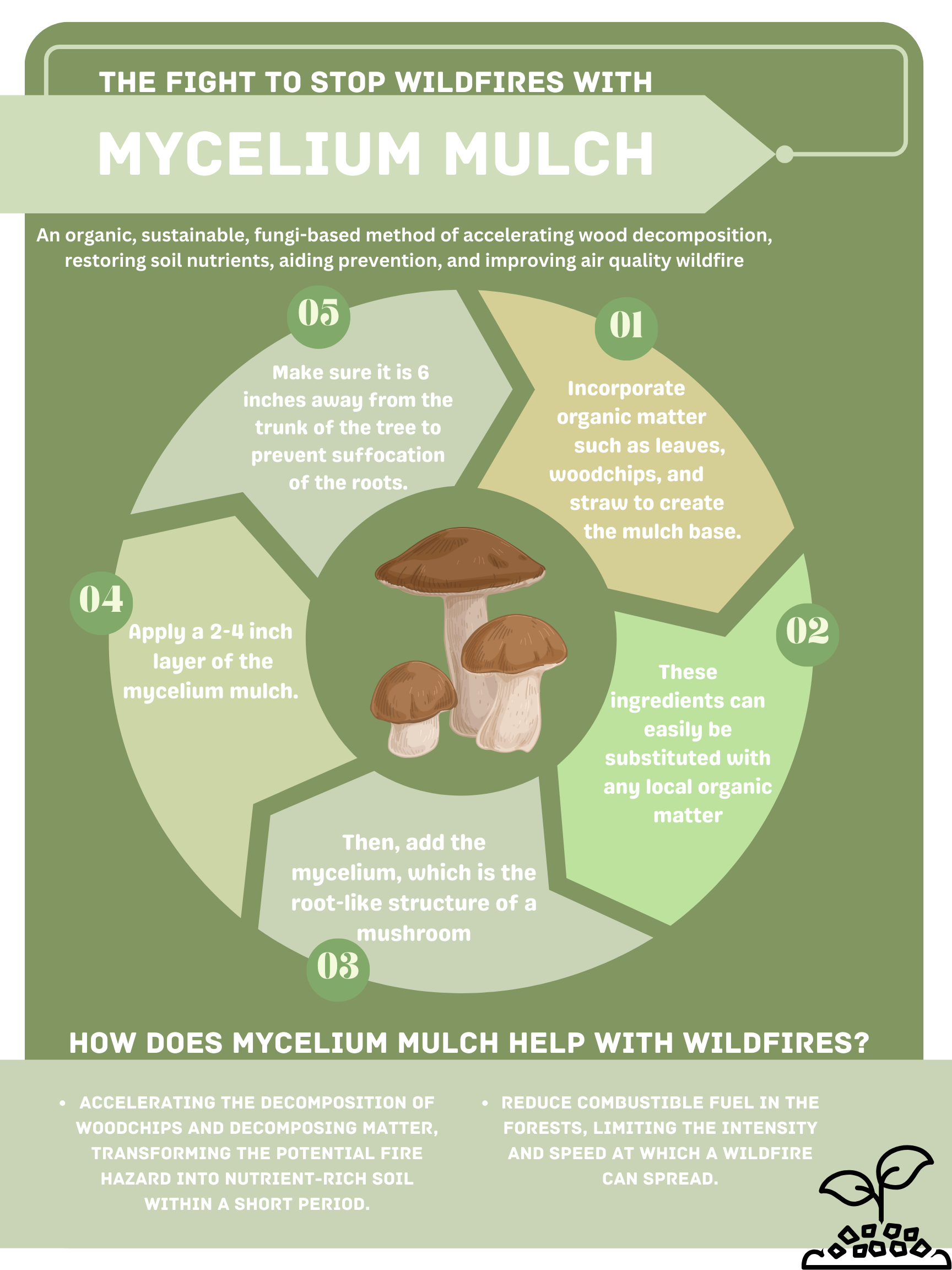Southern California faces recurrent, severe wildfires, releasing hazardous smoke, and causing respiratory issues. Annual California wildfires burn about 2 million acres, resulting in $18.7 billion in property damage over the past 5 years. In response, foresters advocate thinning forests to reduce the density of trees, limiting fuel for wildfires. However, leftover thinned logs pose a burning threat. Hauling them out is expensive and decomposition takes over 50 years. To accelerate this process, I propose "Mycelium Mulch," an organic, cost-effective method utilizing fungi to decompose wood chips and restore soil nutrients. Local climate volunteers and foresters can help craft this mulch from wood chips, plant residue, straw, and nutrients, adaptable to local materials. Applied in a 2”-4” inch layer, and 6 inches away from the trunk to prevent rot, Mycelium Mulch accelerates decomposition, taking months to a few years. Additionally, mycelium aids air pollution mitigation, trapping harmful particles and engaging in bioremediation, a process that uses living organisms to neutralize contaminants, making it an eco-friendly solution for air quality improvement surpassing some modern methods. Collaborative efforts and local adaptation enhance the affordability and feasibility, promising future global impact on wildfire prevention beyond Southern California.
Contact us
Thank you for your interest in contacting Future Engineers. We look forward to connecting with you!
General Inquiries
support@futureengineers.orgSponsorship Inquiries
sponsor@futureengineers.org
